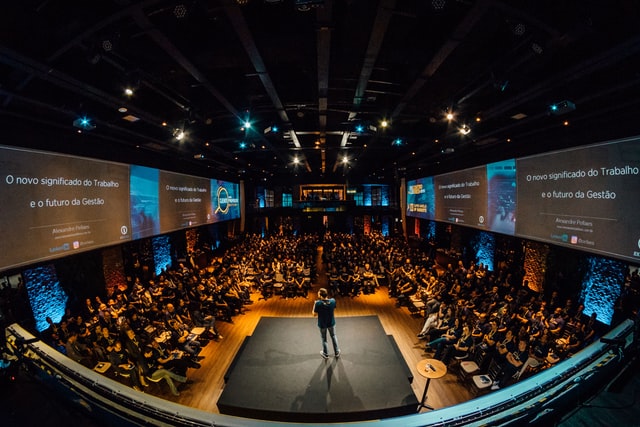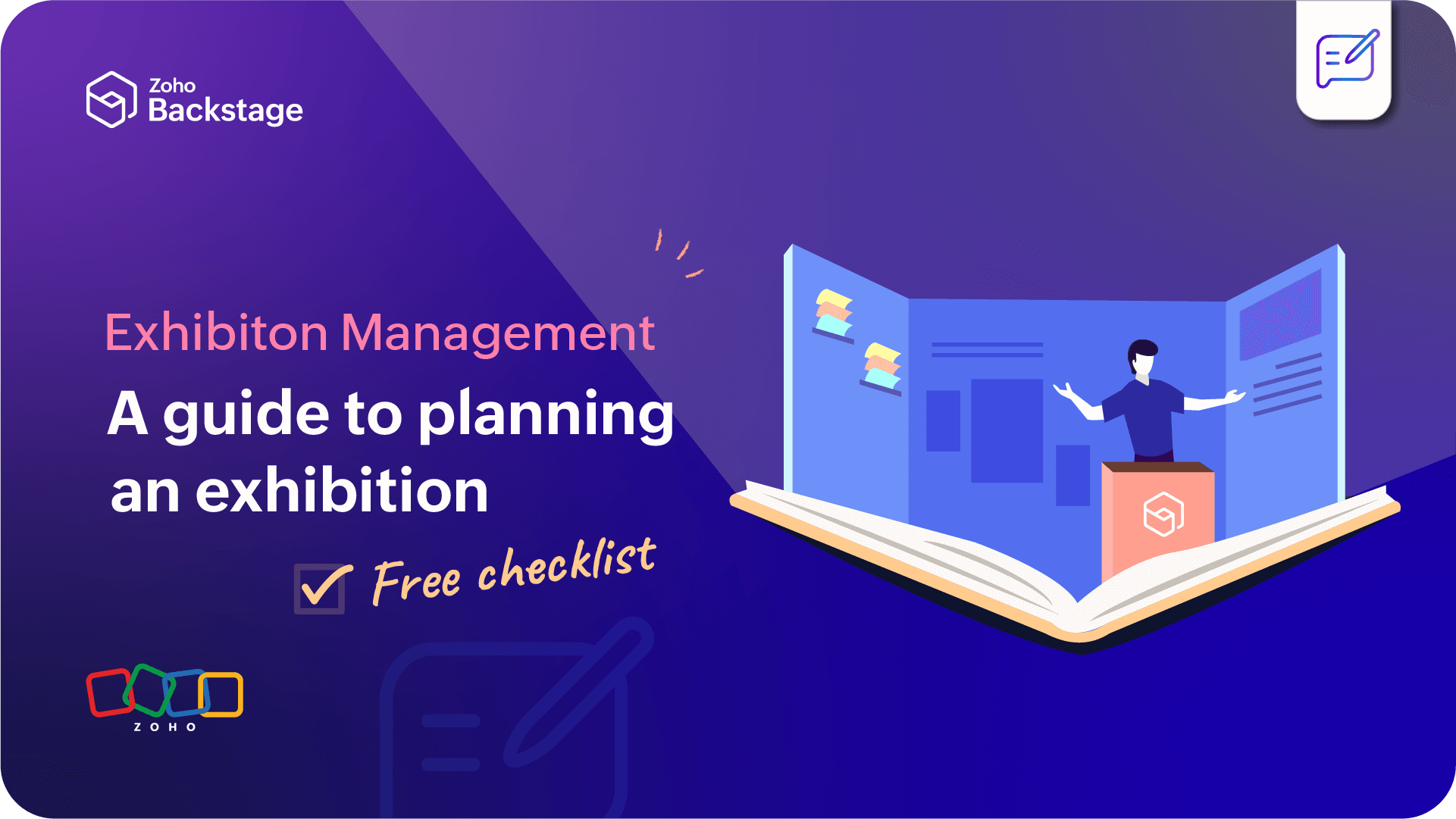- HOME
- Management
- A 5-point guide to choosing speakers for events
A 5-point guide to choosing speakers for events
- Last Updated : August 18, 2023
- 1.4K Views
- 5 Min Read

Ask any 10 attendees why they’re attending an event and we’re pretty sure more than half would tell you it’s because they like a particular speaker or session on your event’s program. The more thought and research you put into building an agenda that’s relevant to your audience and hooks them, the higher the chances that more people attend your event. That’s one reason most events rope in huge celebrities as keynote speakers (even when they aren’t connected to that particular event or industry).
However, choosing a speaker is a lot more nuanced than just their popularity rating. The speakers at your event are a public representation of your event brand. You also have to consider the type of session you want that speaker to conduct, their rapport with other speakers or the host, and more. In this article, we discuss five things you can do that’ll make it easy for you to land the best speakers for your events.
Set a goal for your event
It all begins with understanding your event’s purpose. Why are you hosting it? To educate people? Entertain them? Do you want to host wellness breaks? Fun activities? All of them? These days, with most events having a hybrid element, it’s also important that you decide how speakers will present—onsite or virtually—and which speakers would suit which medium best. The clearer your goals for the event, the easier it’ll be to find the right people.
For this, most event planners suggest creating a mock agenda of the event. Here, you can plan how many sessions you need, when the keynote will happen, how long the sessions will be, what type of sessions they’d be—panel, interview, or something more collaborative—a rough list of topics you’d like to cover, if you’d like to host some fun or wellness-related activities, and what those would be and when they should be scheduled.
Explore potential speakers
Once you’ve got a rough idea of what topics and activities you’d like to include in your event’s program, you can start researching relevant speakers in those fields. One way to do this is by looking for speakers in online communities and speaker databases. Some popular websites are National Speakers Association, SpeakerHub, and Leading Authorities. You can also try professional networks or past speakers of events similar to yours to find relevant speakers who match your audience’s tastes.
Apart from this, you can also ask your audience who they’d like to see at the event. Send them an email, run a poll on social media, or even get in touch with repeat attendees over a call to find out what they think. While making your list of potential speakers, here are some things to look out for:
What’s their experience—both in the industry and as a speaker?
Can they attract a large audience?
How’s their stage presence?
Will their presentation style match your event or session goals?
How comfortable are they with technology (especially if this is an online event)?
Plan for speaker compensation
Another important thing to consider when selecting speakers for your event is how you’re going to compensate them. While some speakers—like the professional and motivational ones—do expect a fee to speak at events, some—especially those starting out—are alright with a small honorarium and other forms of compensation like quality leads that can help them build their personal brand.
It’s not just the speaker fee you’re looking at here. Some speakers might also expect you to pay for their travel and accommodation. Then there are others that’s like some special A/V equipment or gadget.
Do your research
After you make a final shortlist of the speakers you want to invite to your event, you can do another level of research to analyze how well they’d suit your event (and brand), and if they’ve been involved in any controversy that would reflect badly on you. If this turns out satisfactory, the next step is reaching out to the speaker.
This is a good place to get all your questions cleared and set the right expectations. Some things you can discuss are:
Session details: The topic you’d like them to cover, the session length, mode and style, and the type of audience they can expect.
Compensation: Their fee, anything extra they require, and other benefits they can expect from participating in the event like PR, free event passes, and more.
Requirements: If they’d like any resources—equipment, volunteers, or facilities—to conduct the session.
Apart from these, you can also talk to them about the promotional activities you’ve planned for the event and how you’d like them to contribute, what happens if they have to cancel, and more.
Don’t forget diversity
The easiest way to offend attendees and put them off your event is by having a speaker roster that lacks diversity. Make sure you have a variety of speakers who mirror the diversity of your audience. For the best impact, don’t make diversity a token checkbox that has to be ticked off your list. Be intentional about your approach—avoid male-only panels, invite underrepresented people, and most importantly, don’t expect your diverse speakers to talk about diversity.
At the same time, just inviting diverse speakers is not enough. You should also make sure they are welcomed. Keep them informed about the event and give them opportunities to get involved with your event and connect with attendees. If you’re inviting speakers with disabilities, make sure you address their accommodation needs—wheelchair access, braille, access for service dogs, or anything else they require to feel comfortable at the event.
Finally, follow up with speakers after the event—send them a thank you note, share their session analytics and feedback, and let them know that you’d like to have them as part of your community and have them over at future events.
We hope you found this article useful. Choosing the right speakers for your event can be a very daunting task and we’d love to know how you do it—share your tips, advice, and stories by tweeting us @ZohoBackstage.
 Nisha
NishaMarketing and content at Zoho Backstage. Cultural misfit. Armchair traveler. Productivity geek. Sometimes, I write poetry. Sometimes, it rhymes.






